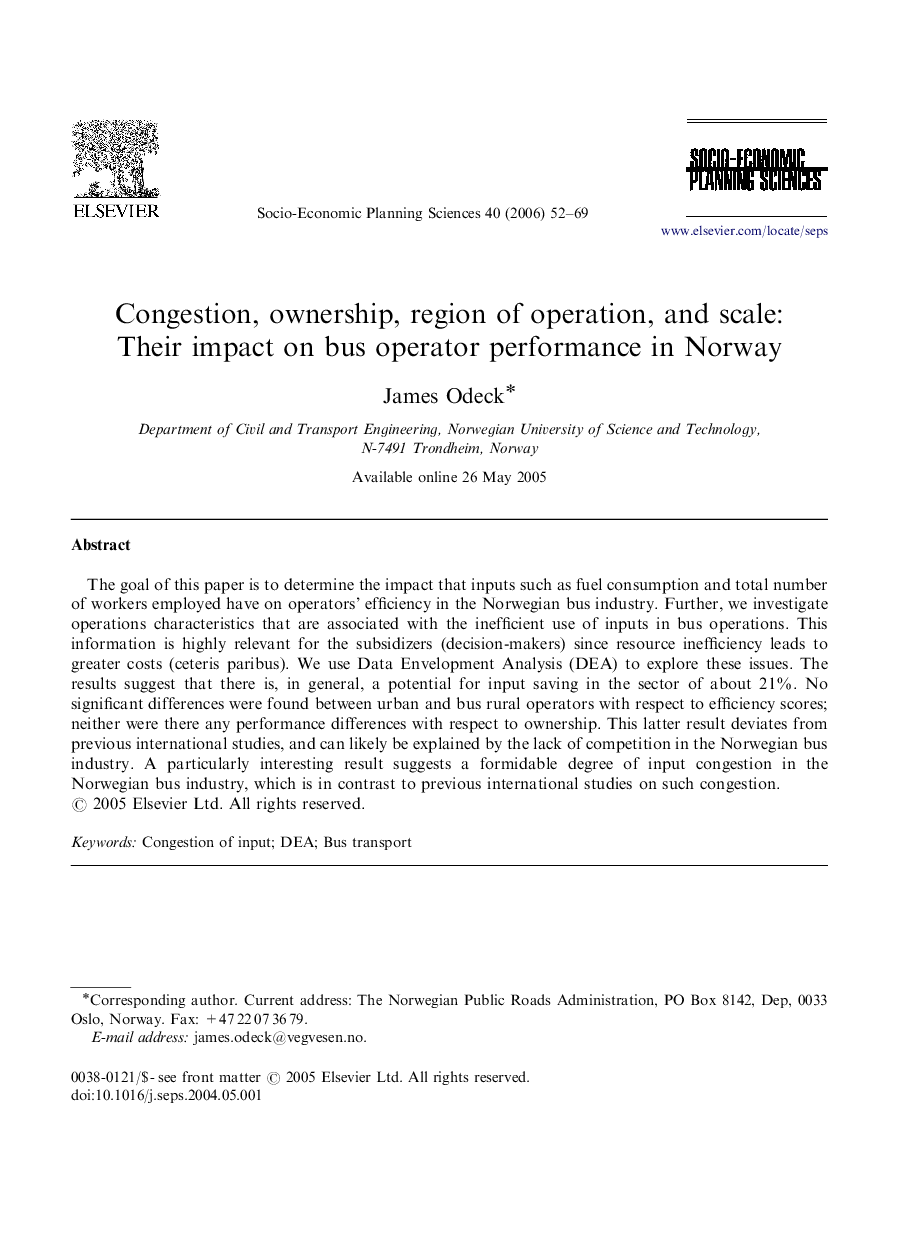| Article ID | Journal | Published Year | Pages | File Type |
|---|---|---|---|---|
| 987720 | Socio-Economic Planning Sciences | 2006 | 18 Pages |
The goal of this paper is to determine the impact that inputs such as fuel consumption and total number of workers employed have on operators’ efficiency in the Norwegian bus industry. Further, we investigate operations characteristics that are associated with the inefficient use of inputs in bus operations. This information is highly relevant for the subsidizers (decision-makers) since resource inefficiency leads to greater costs (ceteris paribus). We use Data Envelopment Analysis (DEA) to explore these issues. The results suggest that there is, in general, a potential for input saving in the sector of about 21%. No significant differences were found between urban and bus rural operators with respect to efficiency scores; neither were there any performance differences with respect to ownership. This latter result deviates from previous international studies, and can likely be explained by the lack of competition in the Norwegian bus industry. A particularly interesting result suggests a formidable degree of input congestion in the Norwegian bus industry, which is in contrast to previous international studies on such congestion.
